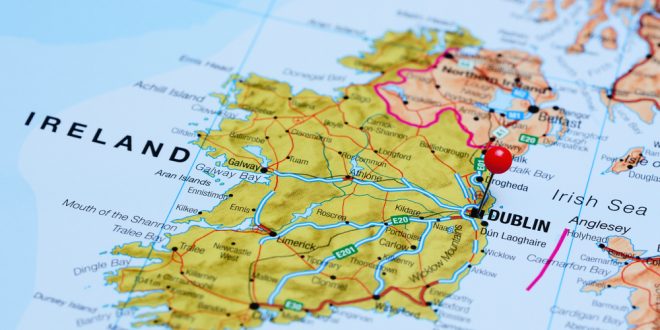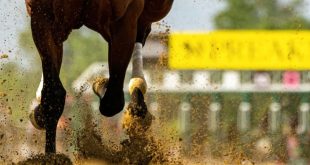Ireland’s Minister of State at the Department of Justice, James Browne – the politician with oversight of the country’s legislative changes on gambling – has commented on the results of a report into underage gambling.
Published by Ireland’s Institute of Public Health (IPH), the report is based on data from the European School Survey Project on Alcohol and other Drugs (ESPAD), a cross-sectional study of 15-16 year old students carried out every four years in 35 European countries.
Of significance for Browne, the Minister emphasised that Ireland’s Gambling Regulation Bill, updating the country’s betting regulations for the first time since 1956, is a ‘public health measure’.
The latest report from the Irish public health authority puts the number of 16 year olds in Ireland reporting participation in gambling over the last 12 months at ‘between one in four and one in five’, or 22.9%.
The 22.9% figure is presented by the report as a ‘composite’ figure, consisting of several different forms of gambling. This showed that out of the 1949 children surveyed, 447 (22.9% had gambled ‘at least once’ in the past 12 months, with the remaining 1,502 (77.1%) having never gambled.
A gender breakdown saw boys more likely to gamble than girls, with 28.2% of the former and 17.9% of the latter engaging in betting according to the cross-continental European data.
Across all 16 year olds, around 2.8% experienced ‘excessive gambling’. With regards to problem gambling, the vast majority of young people who met the criteria were male at 80%.
Around one in 10 of all 16 year olds who gambled in the previous 12 months met the criteria for excessive gambling, which was largely associated with being male, as well as other factors such as excessive drinking, tobacco and/or e-cigarette use and trouble with the police.
However, the report only associates excessive gambling with online gambling, ‘betting on sports or animals, slot machines and playing with cards or dice, but not with lotteries, bingo or scratch cards.
Browne remarked: “The findings of this report are deeply troubling and serve to highlight why we, as a society, must protect children and vulnerable citizens from the harms associated with gambling.
“Reforming gambling legislation and regulation in Ireland is a key commitment in our Programme for Government and Justice Plan, and has been one of my priorities as Minister.”
A breakdown of betting products saw betting on sports and animals – meaning horse and dog racing in the case of the latter – emerge as the most popular form of gambling among under-16s at 14.5%. Of this number, 60.7% placed at least one bet on sports or animals, and seven out of 10 were male.
This was followed by lotteries, bingo and scratch cards at 11.9% of all 16 year olds, whilst 51.8% of those who reported gambling in the last 12 months reported the use of lotteries, and six out of 10 were boys.
Lastly, 19.4% of all 15 year olds reported gambling using cards or dice, with 41.3% of all under-16 gamblers reporting betting via these methods and with boys making up six in 10 of this group.
In-person gambling appears to be the dominant form of betting among 11-16 year olds in Ireland according to the IPH report and ESPAD data. Of those who reported gambling in the past 12 months, 23.1% reported betting online.
As noted above, Minister Browne’s response to the IPH report reiterated that Ireand’s Gambling Regulation Bill is a ‘public health measure’. Published in November, the Bill is currently in the Fourth Stage Dáil Éireann, the lower house of the Oireachtas.
Browne explained: “At its core, the Gambling Regulation Bill is a public health measure. A key focus of the Bill is to protect children from the widespread proliferation of gambling advertising across different forms of media.
“That is why the Bill provides for a watershed prohibiting the broadcast of gambling advertising on television, radio and on audio-visual media services between the hours of 5:30am and 9:00pm.
“The Bill introduces restrictions on the advertisement of gambling activities aimed particularly at protecting children and vulnerable people from the harms of problem gambling.”
Ireland’s move to re-regulate its gambling sector has come at the same time as its UK counterparts on the other side of the Irish Sea have been pursuing similar legislative overhauls, in the form of the 2005 Gambling Act review.
Whilst Ireland has progressed with its governmental and legislative processes, having drafted the Bill and introduced it to parliament much quicker than in the UK, both developments have had some parallels.
Protecting young people from gambling harm has been a core focus of both, and the extent and future of gambling advertising – particularly its prevalence in sport – has also been debated.
Meanwhile, the Irish government’s recent response to the ESPAD-based IPH study somewhat mirrors the publication of the Office of Health Improvement and Disparities (OHID) report in the UK back in January, three months before the White Paper on the Gambling Act review was published.
Commenting on Ireland’s Bill, Browne remarked: “At its core, the Gambling Regulation Bill is a public health measure. A key focus of the Bill is to protect children from the widespread proliferation of gambling advertising across different forms of media.
“That is why the Bill provides for a watershed prohibiting the broadcast of gambling advertising on television, radio and on audio-visual media services between the hours of 5:30am and 9:00pm.
“The Bill introduces restrictions on the advertisement of gambling activities aimed particularly at protecting children and vulnerable people from the harms of problem gambling.”
Some political stakeholders in Ireland, notably the Labour Party, have called for legislation to go further and completely ban gambling advertising. This has been echoed by other prominent figures such as President Michael Higgins and former Paddy Power executives Stewart Kenny (Chief Executive) and Fintan Drury (Chairman).
What is clear is that the Gambling Regulation Bill will grant added powers to the newly created – Gambling Regulatory Authority of Ireland, headed by Anne Marie Caulfield as CEO, to “prescribe the times, places and events where gambling advertising can be broadcast, displayed or published”, according to Browne.
The Minister continued: “This power will allow the Authority to address the issue of gambling advertising on social media, online, and on traditional media such as television and radio, as well as in publications and outdoor advertising such as billboards etc.
“It will ensure that the Authority will have the requisite flexibility to adopt focused measures in a responsive and agile manner in order to regulate an industry that is ever changing, adapting and evolving.
“The Bill also prohibits commercial gambling companies from sponsoring any event that is aimed at or appeals to children or from sponsoring sports teams, clubs and facilities where children are members.”
On the conclusion of the Gambling Regulation Bill, Browne added: “I expect that the Gambling Regulation Bill 2022 will complete its journey through the Oireachtas early next year, subject to the cooperation of both Houses.”









